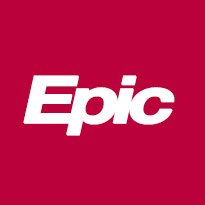Cambridge University Hospitals NHS Foundation Trust and Papworth Hospital NHS Foundation Trust have signed with Epic for its electronic patient records system as part of their eHospital programme.
The trusts have also revealed they plan to spend £200m on their joint eHospital programme over the next ten years.
US-supplier Epic won the high-profile Cambridge and Papworth EPR procurement in April 2012. Hewlett Packard won the hardware and infrastructure part of the tender.
The contracts were due to be signed in June last year, but Dr Afzal Chaudhry, Cambridge’s clinical lead for IT, told EHI that the process had taken longer than expected.
“The whole process has taken us two years. It’s a complex thing and we’ve spent a lot of time creating a programme suitable for us,” he said.
“It’s taken a lot of time but it’s given us insurance that we are making the right decision for the hospital.”
Cambridge, which will be Epic’s first UK reference site, has come under close scrutiny by Monitor recently.
In November last year, the trust was found in significant breach of its terms of authorisation by the foundation trust regulator due to successive failures to meet several healthcare targets.
This called into question whether the trust was financially able to deliver its eHospital programme, but Chaudhry told EHI that the trust believed signing with Epic would help Cambridge achieve its targets.
“The trust takes the breach of authorisation very seriously: the trust has already achieved several of the targets set out by monitor. The trust board has done a lot of work, so that even in the environment with Monitor we have a programme we can achieve,” said Chaudhry.
“We need to have a programme that’s sustainable and affordable. The programme we have put out underpins that.”
The eHospital programme will involve expenditure of £200 million over the next 10 years.
A statement from Cambridge said eHospital involved clinical information and decision support systems, a wholly integrated EPR and the supporting technology and infrastructure.
The trust’s new chief executive Dr Keith McNeil said the investment was “the most significant decision the hospital has made in recent times”.
Cambridge plans to go-live with Epic in October 2014 and a team of 80-100 staff members – including consultants, junior doctors, nurses, pharmacists and managerial staff – will be seconded to work on the project.
“As part of the implementation plan we have lots of clinicians involved, and they will have a big part in the implementation, defining workflows and embedding that into the system,” said Chaudhry.
“It’s about changing the way our hospital works”.
When Cambridge chose Epic ahead of Allscripts and Cerner, the decision was seen by many as one of the most important NHS IT procurements in recent years. Chaudhry said that despite being the first UK Epic site, he was confident it would work.
“We have decided that Epic would be best for us. We know from previous installations that Epic has done that they have a very established implementation pathway,” he said.
However, he added: “There are elements of the system (needed by the trust) which are more NHS-specific and that needs to be addressed.”
Cambridge said the Epic software would provide staff with automatic guides, prompts and alerts where necessary. Forms would be pre-populated with patient’s information, and test results, medication history, clinical documentation and treatment summaries would be available in one place.
The trust’s eHospital programme also includes new infrastructure and hardware from HP.
“We have an infrastructure now that works, but it doesn’t let us deliver what we want. With HP we can push the boundaries of what we can achieve,” said Chaudhry.
The statement from Cambridge said staff would use tablet, handheld and other mobile devices – including their own – to access, report and communicate critical information.
In the future it also plans to give patients online access to their medical records.
Papworth Hospital, who have partnered with Cambridge in the procurement, will participate in the design process so that they can join the implementation in due course.

